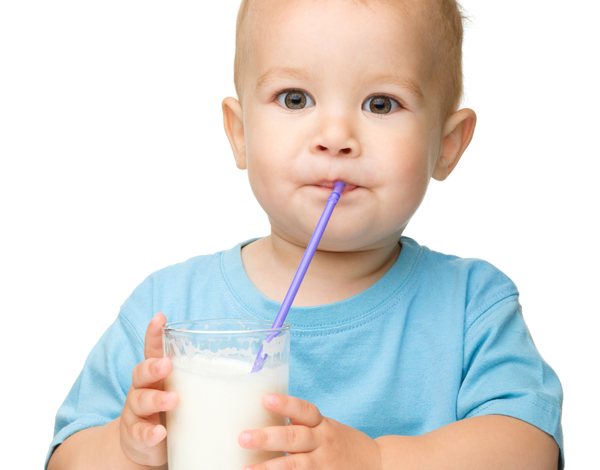Join the thousands of parents already raising smarter, happier babies with our online baby classes: The Active Babies Smart Kids series. Click here.
GymbaROO-KindyROO kids are excelling academically, emotionally, in leadership roles and on the sporting field. Find us at: GymbaROO-KindyROO
By Alice Bastable
Australia has one of the highest rates of food allergies in the developed world and, over the last ten to fifteen years, the incidence in infants and young children has risen at an alarming rate. One in ten babies born in Australia today will develop a potentially life-threatening food allergy. Anaphylactic reactions now account for one in every five hundred hospital admissions for children aged five to fourteen years old.
Food allergy in children usually presents within the first year of life. Fortunately most are ‘outgrown’ over time – in the majority of cases before the child reaches the age of five. However some allergies stay for life and being able to recognise symptoms of an allergy and know where to get help could save your child’s life.
The most common triggers for a food allergy in children are proteins found in eggs, cow’s milk, peanuts and tree nuts. Less common triggers for infants and children are seafood, sesame, soy, fish and wheat. Interestingly enough peanuts, tree nuts and seafood allergies in children are more likely to last for life.
Allergic reactions to food can vary in their effect ranging from mild symptoms such as a runny nose or upset stomach to life threatening conditions such as anaphylaxis.
What is a food allergy?
‘Food Allergy’ is defined as an immune response to a type of protein called an allergen. Our body contains a type of white blood cell called ‘Mast Cells’. One of the many jobs of a Mast Cell is to kill worms and parasites that our body comes into contact with. To do this, Mast Cells are filled with chemicals including histamine and allergen detectors called IgE antibodies. When a person with a particular allergy comes into contact with that particular allergen their Mast Cells react releasing their IgE antibodies and their chemical contents (including histamine) causing an allergic reaction.
It is important to remember that an allergy involves an immune response and reactions can range from very mild to life threatening. It is important to follow up any suspicions of an allergy with a specialist as soon as possible.
What is food intolerance?
‘Food Intolerance’ on the other hand is not an immune response – it is purely a chemical reaction. Food intolerance is not life threatening, however can cause unpleasant symptoms so is always worth investigating. Common food intolerances may include salicylates, MSG, glutamates, preservatives and colouring agents. Food intolerances are often dose- dependent (e.g. the more problem food consumed the worse the symptoms) and are more common than food allergies. Common signs of food intolerance include sweating, palpitations, headaches, ear infections, diarrhoea, breathing problems, nervousness and allergy-like symptoms.
What are the most common allergies?
90% of food allergies in children are caused by nine foods. They are cow’s milk, eggs, peanuts, tree nuts, sesame seeds, soy, fish, shellfish and wheat.
Less common triggers such as preservatives, additives, herbal medicines, fruit and vegetables have been described. It should be noted that, though rare, almost any other food can also cause allergic reactions.
Common symptoms of food allergies typically include:
- Hives
- Swelling around the mouth area
- Vomiting
Less obvious symptoms include runny nose, constant ear infections, diarrhoea and abdominal pain. Usually food allergy symptoms occur very soon after consuming the allergen. Food intolerance symptoms can also occur soon after consumption but sometimes take 12-24 hours to develop.
Symptoms of allergy and intolerance can be the same so it is very important to get a specialist to investigate if you suspect your child has such symptoms.
Why are food allergies on the rise?
It is still unknown exactly why food allergies are on the rise in infants and young children. What we do know is that there has been a large increase in the prevalence of allergic conditions such as asthma, eczema and food allergy in Australia and New Zealand over the past 30 years.
Possible explanations for the rise in prevalence include; ‘The Hygiene Hypothesis’ (the idea that less exposure to infections in early childhood is related to an increased risk of allergy); Delayed versus early introduction of allergenic foods; Changes in methods of food processing and allergy development via skin exposure (e.g. using nut based moisturizers).
The exact reason for the increase in prevalence of food allergies is still not known and more research is required to crack that nut (pardon the pun).
Can food allergies be prevented? What is the latest research?
This is a new and exciting area of research. As it stands, current research indicates that exclusively breastfeeding during the first four to six months or longer appears to protect against the development of allergies and that starting solids too early may increase the risk of developing allergies in early childhood. Soy based formula has not been shown to reduce the risk of developing an allergy.
Research also indicates that if a breastfeeding baby has been shown to be allergic to a particular food, a breastfeeding mother should avoid eating that food.
Research suggests that exposing an infant or child to cigarette smoke can increase the risk of developing allergies in early childhood.
There is inconclusive evidence to suggest that avoiding an allergen during pregnancy will decrease the risk of a child developing an allergy.
It is important to note that the research and evidence base in this area is continuously growing and expanding thus it is always best to see a specialist in this area to get the most up to date advice for you and your child.
Where can I go for further information?
If you suspect your child has a food allergy you need to see your doctor/ paediatrician/ allergy specialist as soon as possible.
Once an allergy has been formally tested and identified an Accredited Practicing Dietitian can help. If your child has a food allergy it can seem daunting but we are here to help you safely navigate the food supply and provide nutritious food to your child.
Another very useful website is The Australian Society of Clinical Immunology and Allergy http://www.allergy.org.au.
Alice Bastable is a Dietitian/ APD and Personal Trainer at Stay Tuned Sports Medicine.
References: http://www.allergy.org.au/patients/food-allergy/food-allergy http://www.growingupinaustralia.gov.au/pubs/asr/2012/index.html http://www.betterhealth.vic.gov.au/bhcv2/bhcarticles.nsf/pages/Food_allergy_and_intolerance http://allergenbureau.net/aware-show-care-australias-food-allergy-week/
GymbaROO-KindyROO
Thousands of parents, babies and children are presently involved in our programs and creating rising stars. GymbaROO-KindyROO kids are excelling academically, emotionally, in leadership roles and on the sporting field. Come join all the fun and learning! “GymbaROO – The best decision I ever made for my child.” Classes from 6 weeks old – 7 years GymbaROO KindyROO
Active Babies Smart Kids – Online Baby Classes
GymbaROO-KindyROO’s online series of baby classes is taking the parenting world by storm! It is highly recommended by doctors, paediatricians, early childhood experts and the Maternal Child and Family Health Nurses Association. This series is being called: “The essential guide for parents”. Join the thousands of parents already playing with their babies from birth, in the best way for brain and body development and laying crucial foundations for future learning. What happens in the first year, not only matters, it matters a lot! See Introductory video below.
Active Babies Smart Kids online series – Click here.
Try the first class FREE! Click here to watch our Active Babies Smart Kids Episode 1 – Tummy Time
Enjoy the following GymbaROO-KindyROO articles
GymbaROO-KindyROO: Who, what, where, why and how
All about GymbaROO-KindyROO’s online baby classes for parents and babies: Active Babies Smart Kids
How to raise a smarter, happier baby
Why active babies make smart kids
Become a GymbaROO-KindyROO franchisee
Help children develop healthy eating habits from the start.
How diet affects brain development.
Sugar – as bad for the developing brain as extreme stress or abuse.




